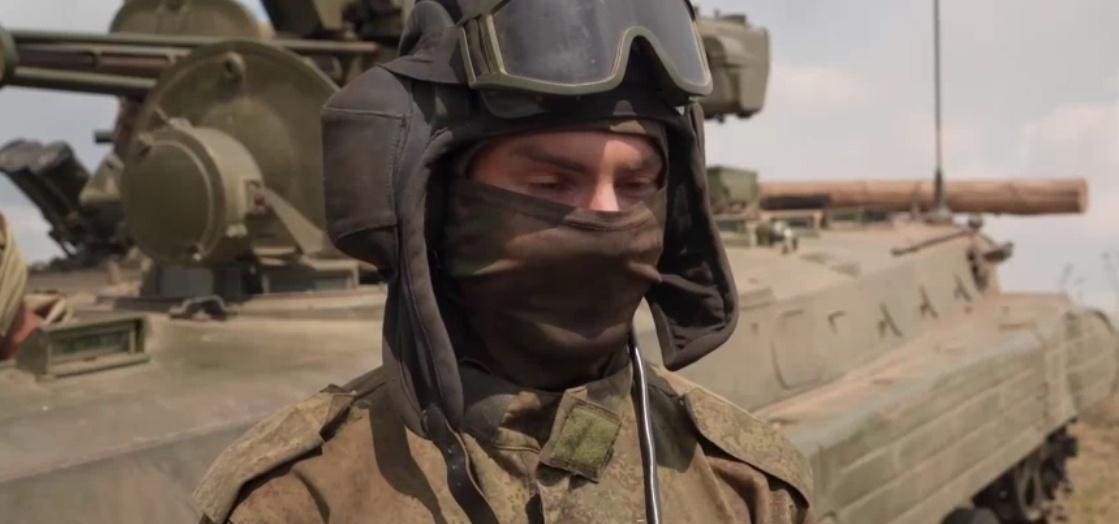The Ukrainian armed forces inherited more than 2,500 BMP-1 infantry fighting vehicles from the Soviet army as the Soviet Union collapsed in 1991.
The 13-ton, 11-person BMP-1 still is Ukraine’s second-most-numerous IFV after the better-armed BMP-2. But the BMP-1 has flaws. Big ones.
Not only is the BMP-1 lightly-protected with steel armor that’s just a quarter-inch thick, its low-pressure 73-millimeter gun lacks hitting power.
To improve the firepower of some of its BMP-1s—and to make surplus vehicles more valuable on the export market—the Scientific and Technical Center for Artillery and Small Arms in Kyiv swapped out the BMP’s old turret for a new one with a much more powerful 30-millimeter autocannon. The new, bigger turret displaces two of the BMP-1’s eight passenger seats.
The Kyiv firm called this upgraded, nine-person IFV the “BMP-1U.” Following an unlikely chain of events that began in the Republic of Georgia in 2008, BMP-1Us now are fighting for the Russians—and against the Ukrainians. A Russian-operated BMP-1U recently appeared in a Russian propaganda video.
Georgia bought 15 BMP-1Us from Ukraine and accepted them into service in 2007. A year later, Russia invaded Georgia—and Russian troops apparently captured every single Georgian BMP-1U. Tbilisi later re-upped on BMP-1Us with a fresh order in 2011.
Russian engineers reportedly spent some time inspecting the upgraded BMPs. And 15 years later, the Kremlin assigned some or all of the ex-Georgian IFVs to a front-line unit. The Russians also have captured a couple of BMP-1Us from the Ukrainians.
Why a Russian BMP crew would want a Ukrainian-made BMP-1U is obvious. The U-model is a better IFV than an unmodified BMP-1 is.
But it’s indisputable that a BMP-1U would complicate a motor rifle regiment’s logistics. The Ukrainian-made Shkval turret is made from Ukrainian parts. To keep some of the 15 or so BMP-1Us in working order, a BMP company might have to cannibalize the rest of the BMP-1Us.
That the Russians were willing to accept the logistical complications speaks to their desperate need for IFVs. The Russian army widened its war in Ukraine in February 2022 with 400 active BMP-3s, 2,800 BMP-2s and 600 BMP-1s. Since then the Russians have lost around 2,000 BMPs of all models, including 500 BMP-1s.
Russian industry can’t produce new BMP-3s fast enough to make good those losses, so the Kremlin has been pulling old BMP-1s and BMP-2s out of storage, replacing their seals and batteries and shipping them to the front as replacements.
Pre-war, the Kremlin was sitting on huge stocks of surplus BMP-1s and BMP-2s—7,200 and 1,400, respectively—but not all of these old IFVs are recoverable. And losses continue unabated. Every Soviet-standard BMP the Russians have lost has made the Ukrainian-standard BMP-1Us more valuable, despite their unique logistics.
Beggars can’t be choosers. And when it comes to BMPs, the Russians have been begging for a while now.
Read the full article here





